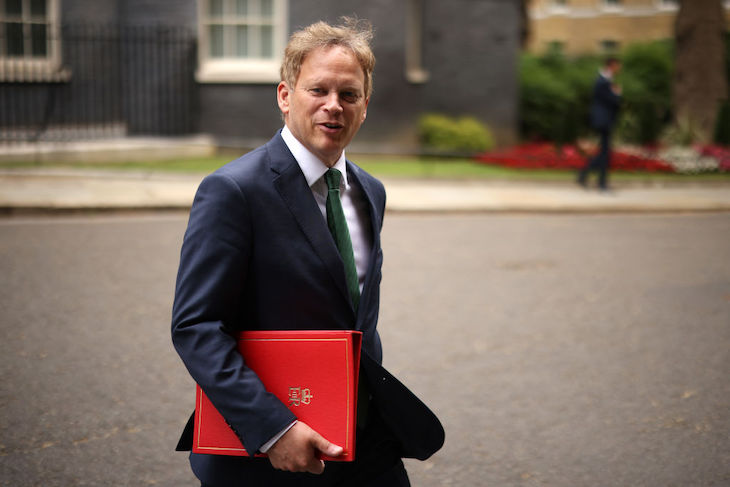Grant Shapps is the new Defence Secretary, after Ben Wallace officially resigned this morning. The seasoned cabinet minister moves from energy secretary to the coveted role. As I reported in this week’s politics column for the magazine, the desired criteria in No. 10 for the candidate included ‘efficient, non-flashy, loyal, decent’. Does Shapps fit all four? Well, he’s certainly loyal having backed Rishi Sunak not once but twice for leader. He’s also viewed as a capable minister both in terms of running a department and performing on the media. Shapps – who famously took the media round over Barnard Castle when Boris Johnson was prime minister – is seen as one of the safest pairs of hands.
As for Shapps’s defence credentials, he conveniently visited Kyiv in the past week. He also very briefly served as the chair of the Ukraine All-Party Parliamentary Group, moving to the Home Office under Liz Truss before her premiership imploded (he is the shortest-serving home secretary in history). He has been a member of the National Security Council from previous roles.
No. 10 wanted Wallace’s successor to be someone they could trust
In his energy brief, Shapps has worked to help Ukraine bolster its fuel security for the winter months and beyond which he argued would help to isolate Putin. Shapps still has big shoes to fill. Wallace was routinely top of ConservativeHome’s cabinet league table and respected by many opposition MPs. His extensive military knowledge was credited for the UK being well-placed to help Ukraine early on. When it comes to voter issues, a recent Ipsos political monitor found that responding to the Russian invasion of Ukraine was the only policy area where voters thought that Labour would do worse than the Tories.
Ultimately the reason Shapps has the brief is that No. 10 wanted Wallace’s successor to be someone they could trust when it comes to tricky spending decisions – both in terms of the current situation and the message at the next election.
During the Tory leadership race, Sunak refused to pledge as much as Truss on defence, with the former prime minister promising to spend 3 per cent of GDP on defence by 2030. When Sunak succeeded Truss, he watered this down – but has vowed to boost funding to 2.5 per cent of GDP in the long term. The worry among Sunak allies was that the wrong candidate could start to lobby for spending commitments the Treasury would struggle to match. Shapps is likely to play ball. Most immediately, Shapps will have to deal with the UK’s depleted military supplies – much of it has been sent to Ukraine.
Shapps’s promotion leaves a vacancy in the energy brief so there will still be a few more moves today. However, the wider reshuffle will take place after the party conference in October. For why that is, see this week’s Spectator politics column.







Comments